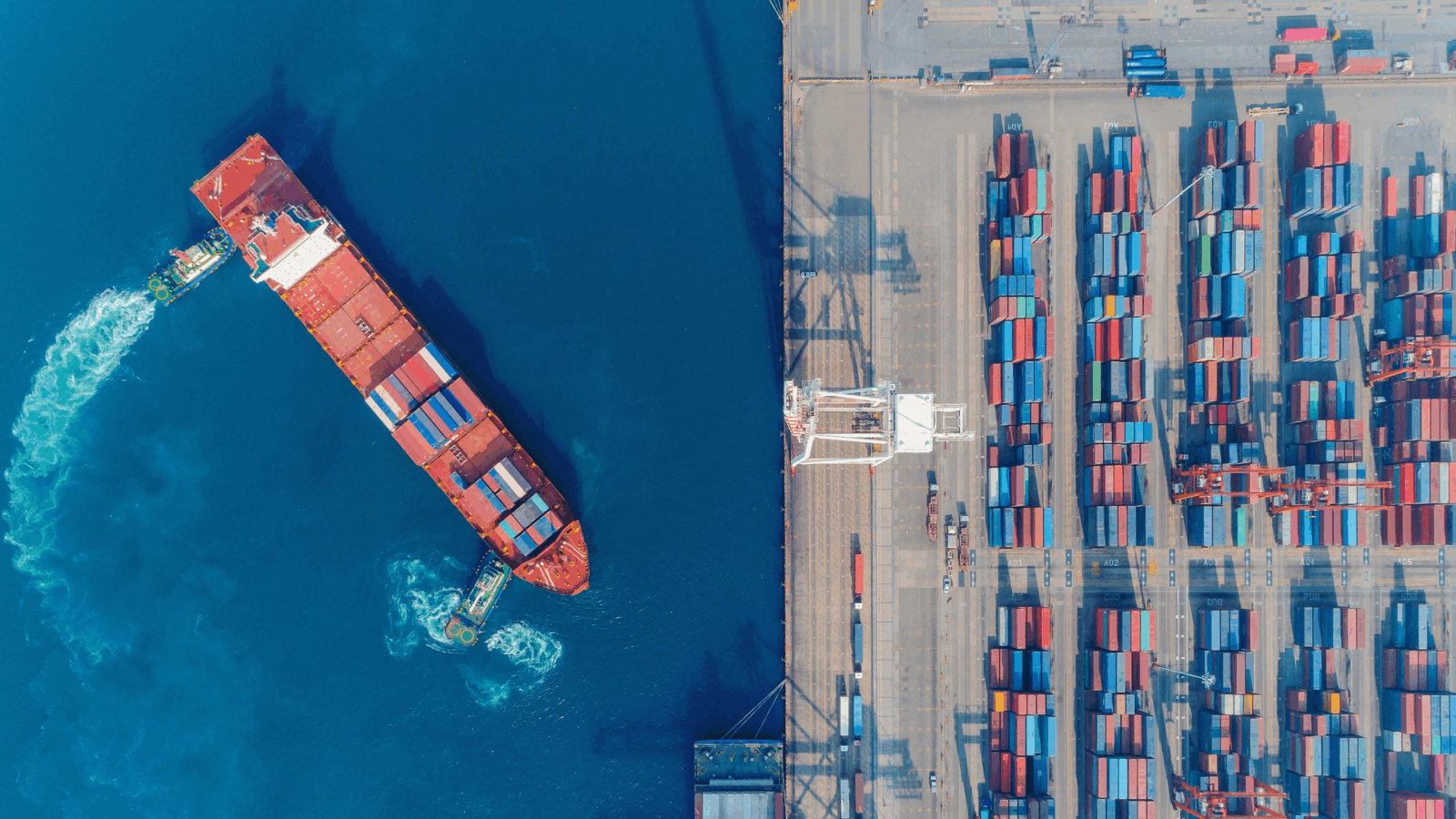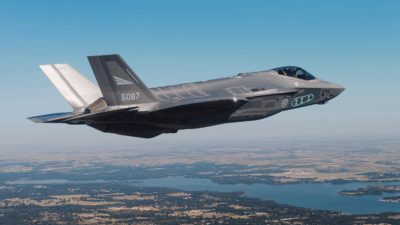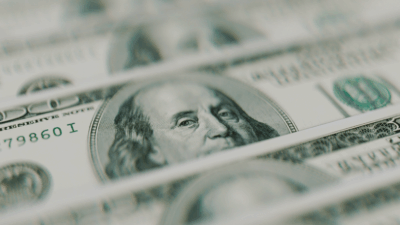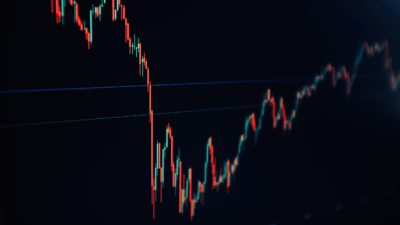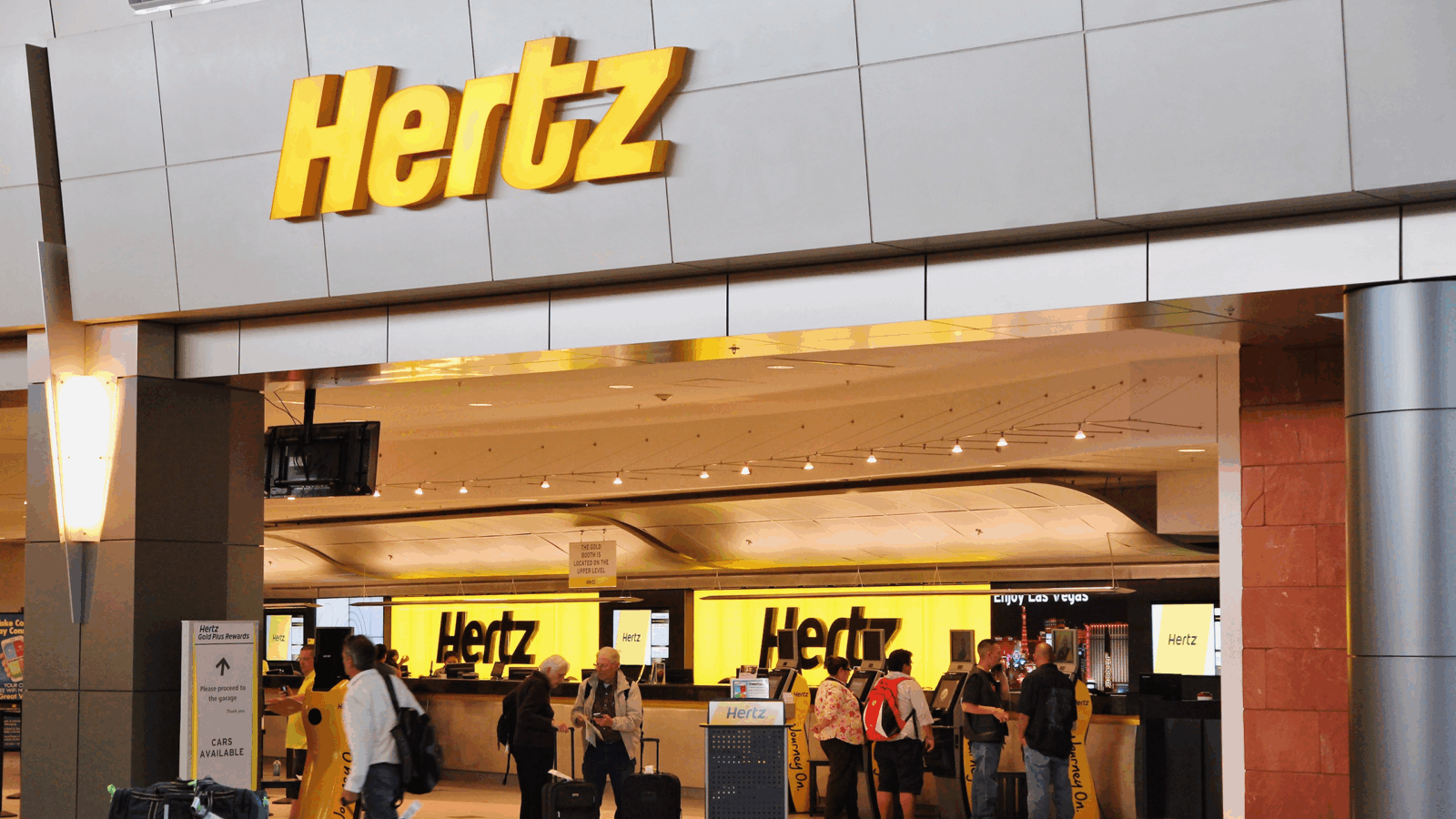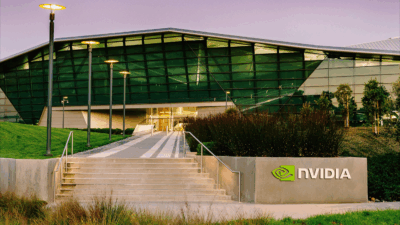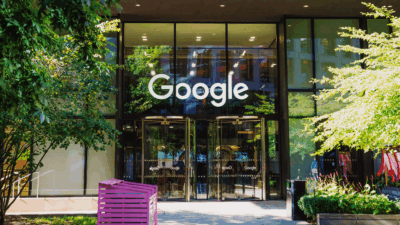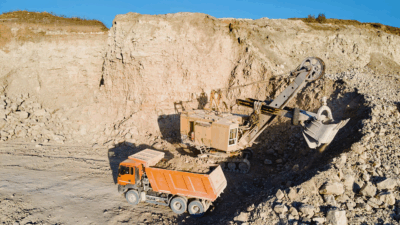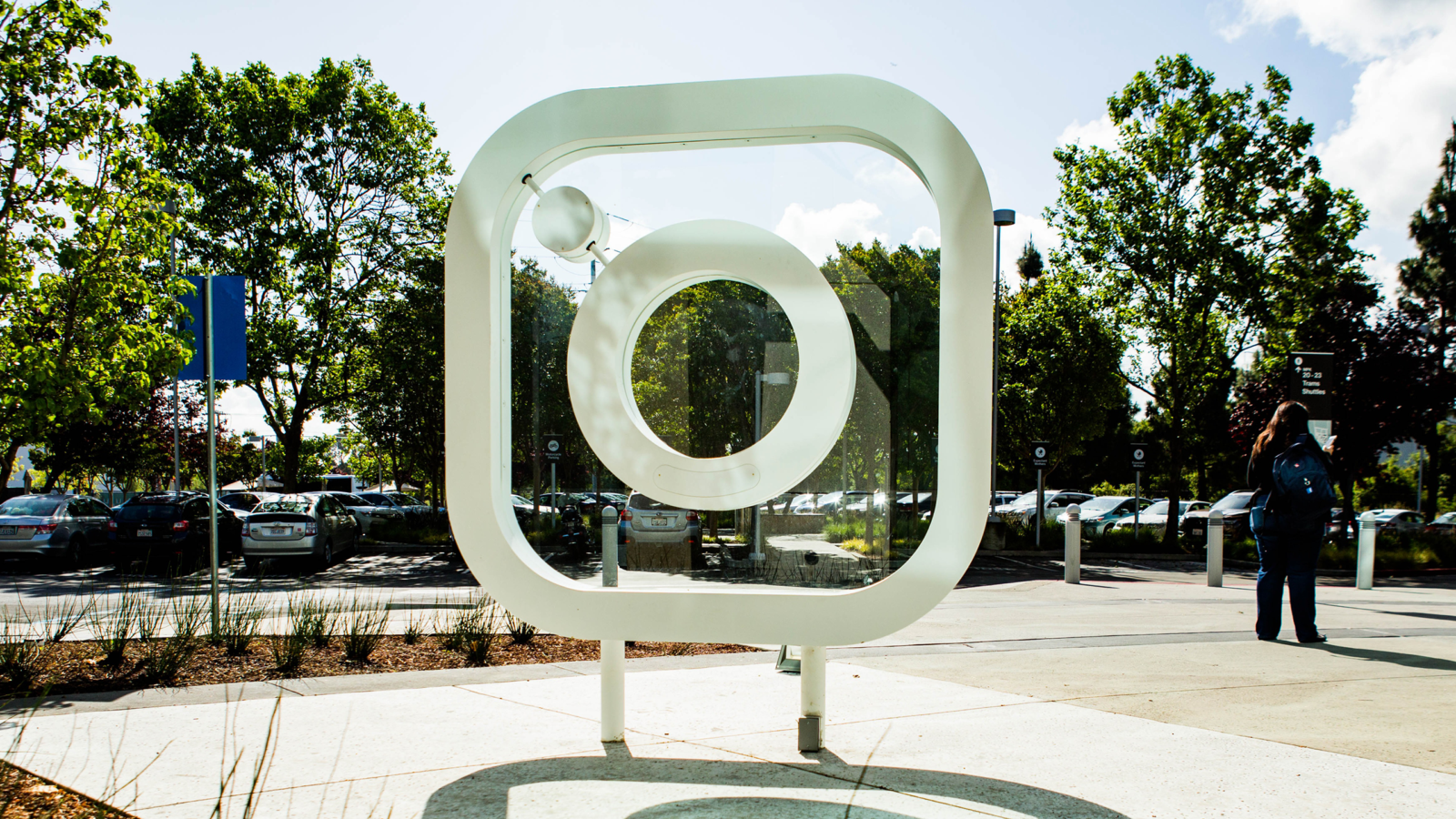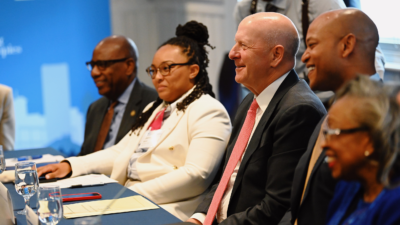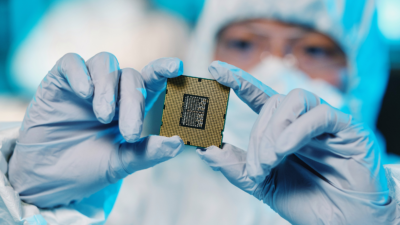Bruised Apple Gives Investors Ringside Seats for Global Tariff Grudge Match
The world’s largest public company by market cap had its biggest one-day wipeout since the Covid pandemic’s 2020 shock.
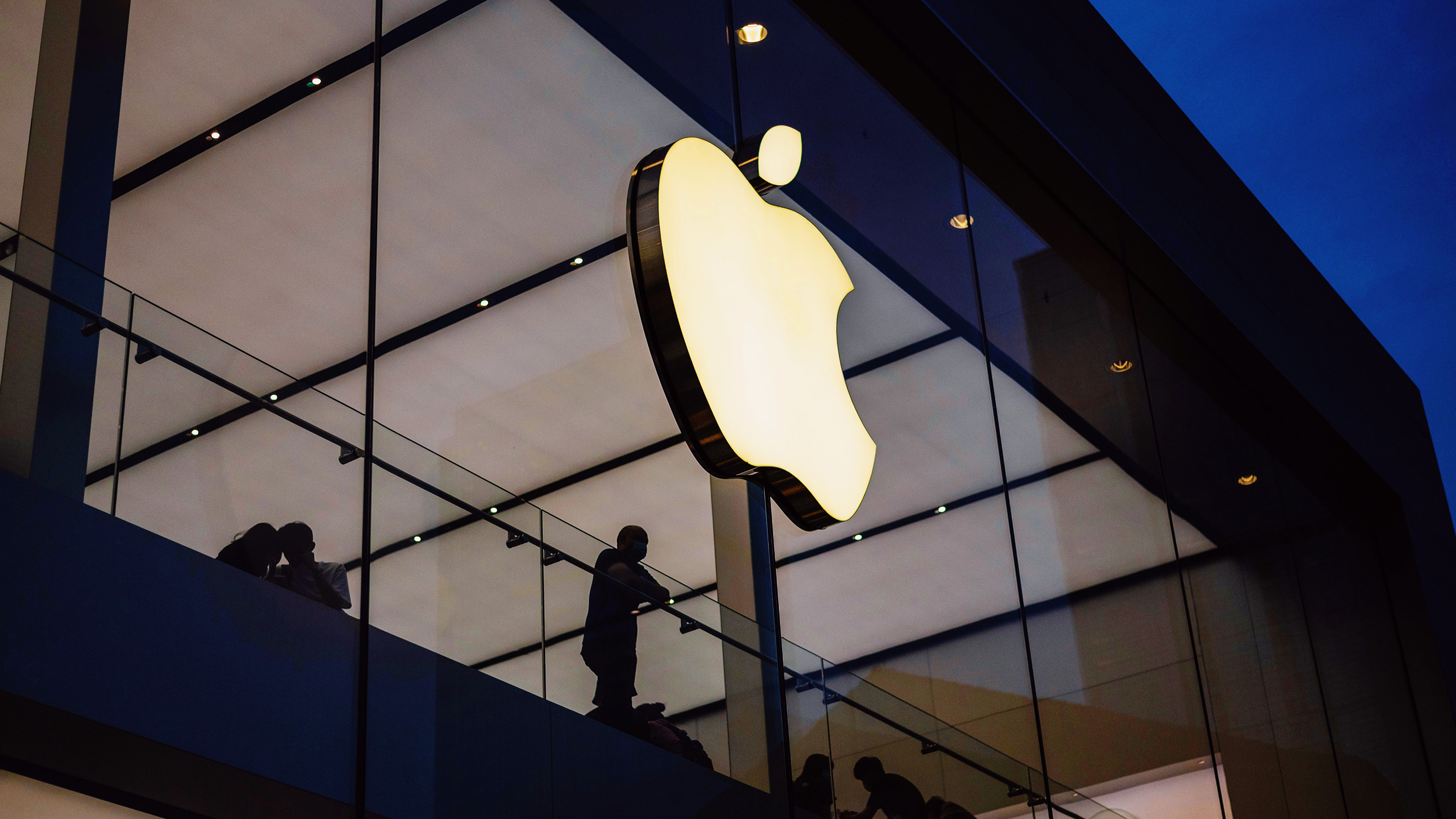
Sign up for smart news, insights, and analysis on the biggest financial stories of the day.
Apple CEO Tim Cook did all the right things, or so it seemed. A December pilgrimage to Mar-a-Lago, a $1 million personal donation to President Trump’s inauguration, a February White House meeting followed by a promise to spend more than $500 billion in the United States in the next four years, including hiring 20,000 staff and building a Texas-sized server factory near Houston.
None of that helped on Thursday, as the White House’s blanket global tariff blitz took a $300 billion, 9.2% bite out of Apple’s shares. The world’s largest public company by market cap had its biggest one-day wipeout since Covid’s 2020 shock. In the process, it offered a clear window into what analysts fear will be, at best, a short-term disruption of the entire post-war global economic order. No sweat.
No Holiday From Tariffs
More than 90% of Apple’s manufacturing is based in China, according to analysts at Citi, a country facing combined tariffs of 54% on imports to the US. And even though the iPhone maker has already been diversifying supply chains away from the Middle Kingdom, that doesn’t exactly help in a global trade war where Washington’s crosshairs are trained everywhere except the US.
For example, Apple supplier Foxconn plans to more than double its iPhone production in India this year to up to 30 million units. But India is facing a 27% tariff. Vietnam, which is home to 20% of iPad manufacturing and 90% of assembly for wearables including Apple Watch, is facing a 46% tariff. Thailand, home to a tiny share of Macbook production, is facing a 36% tariff. The only silicon lining to this cloud is an exemption for semiconductors from the new tariffs, which would shield Apple from levies on chips from Taiwan, now facing a 32% duty. That doesn’t do any good, however, for non-tech manufacturers, whose global supply chains are similarly exposed:
- Take sneaker companies, which rely even more heavily on manufacturing in Southeast Asia and were administered a Michael Jordan-like beatdown on Thursday. Nike, which makes half its shoes in Vietnam, fell 14.4% and Skechers, which makes 4 in 10 shoes there, shed 17%. Outside of Southeast Asia, JPMorgan issued a warning about Swiss watchmakers like Swatch and Piaget-owner Richemont, which were down 4% and 6%.
- The semiconductor exemption, meanwhile, is not a silver bullet that will spare Apple, which was the worst performing of the Magnificent Seven tech stocks Thursday. During Trump’s first term, he cut a deal with China to sidestep tariffs on goods including Chinese-made phones and computers, but Citi analysts said Thursday that, without a similar deal, things could get rough: “If Apple cannot get exempted this time and assuming Apple gets hit by the accumulative 54% China tariffs and does not pass it through, we estimate about 9% negative impact to the company’s total gross margin.”
The Price You Pay: Rosenblatt Securities analysts said, if tariffs remain, the cheapest iPhone 16, currently $799, could rise to $1,142 or 43% more if Apple chooses to pass on the cost to consumers. UBS analysts estimate tariffs on Vietnam will increase the price of consumer goods from there by up to 12%, meaning a pair of Nike Air Force 1 Lows, currently $115, could cost $129. Those old Air Jordans with a tiny hole in the bottom of your closet suddenly aren’t looking so bad.
